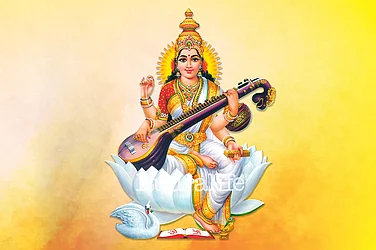Easter is a significant holiday for Christians, commemorating Jesus’s resurrection. In 2025, it falls on Sunday, April 20th, marking an event from nearly two millennia ago. Christians refer to the lead-up to Easter as "Holy Week," consisting of significant days such as Palm Sunday, Maundy Thursday, and Good Friday. Good Friday marks the day of Jesus' crucifixion, and Easter Sunday celebrates the moment Christians believe Jesus defeated death through his resurrection. Christians typically dedicate the 40 days before Easter for prayer, fasting, and contemplation, a period known as Lent. Easter always falls on a Sunday in springtime.
History of Holy Week Traditions
Holy Week marks the final stage of Lent and builds toward Easter Sunday, when Christians commemorate and remember all that led to Jesus's resurrection.
Palm Sunday kicks off the week, commemorating Jesus' arrival in Jerusalem via donkey, fulfilling ancient prophecy about a peaceful ruler. People welcomed Him with palm leaves symbolizing victory.
Holy Monday marked Jesus' journey to Jerusalem's Temple, which had become misused as a marketplace; he cleared out merchants who had entered disrespecting its sacred space and showed it reverence by clearing away.
On Holy Tuesday, Jesus spent his time teaching about faith and obedience as well as giving an overview of the Temple's impending demise - giving an inkling into its demise.
Holy Wednesday (also known as Spy Wednesday) marks the day that Judas agrees to betray Jesus for money, which led to His arrest.
Maundy Thursday commemorates Jesus's Last Supper with His friends, where He shared bread and wine while telling them how deeply they should love each other.
Good Friday is a day for Christian reflection as we remember Jesus' crucifixion and sacrifice for our sins.
Holy Saturday follows as an opportunity to quietly reflect, remembering Jesus lying in his tomb before thinking about loss and hope and looking forward to Easter's joyful arrival.
Easter Sunday brings joyous festivities as Christians rejoice at Jesus's resurrection and its significance for hope and life triumphing over darkness and death.
Holy Week traditions such as church services and processions help Christians commemorate these important events, with some communities even recreating scenes from his final days at church services and processions to mark this significant time period - providing an opportunity for contemplation, anticipation, and ultimately joyful celebration!
Easter Eggs
Beyond its religious observances, Easter also embraces cultural traditions such as the iconic Easter egg. The Easter egg tradition blends old customs and Christian symbols. Eggs symbolize new life and renewal in many religions during spring celebrations. Christians use eggs as a symbolic representation of Jesus's resurrection after his death.
Decorating Easter eggs has been an Easter tradition at least since the 13th century when people began dying chicken eggs with paint to commemorate Jesus' blood shed on the cross. Christians refined egg decoration using onion skins and wax to craft intricate designs on them.
Over time, Easter eggs have become more and more widely popular and diverse. Now you can find chocolate eggs, wooden eggs, and plastic eggs filled with treats - not just to decorate but also to use in Easter games and celebrations to add an extra level of fun and celebration.
The Significance
Easter holds great religious significance because Christians believe Jesus rose from the dead on Easter, showing his status as Messiah and fulfilling prophecies made centuries prior. By rising again from death's grasp, he gave hope of eternal life to his followers.
Christians observe Easter with great joy as a symbol that what was promised in the Old Testament came true and God's plan to save everyone is revealed. Celebrating Jesus's resurrection marks both victory over death and hope that salvation awaits all humanity.
Easter Day changes each year according to a lunar-solar calendar similar to that used by Hebrews; it falls on the Sunday following the first full moon after March 21st.
Easter marks an opportunity for many people to reflect on life's meaning and appreciate its lessons of love and forgiveness. Easter provides a platform to make new beginnings with Christian beliefs while feeling joyful about life as they celebrate Easter Sunday.
History of Easter Celebrations in India
Easter in India began with the introduction of Christianity by Saint Thomas, one of Jesus's disciples, around 52 CE. This marked the first community known as St. Thomas Christians that would come into being and spread Christian beliefs throughout India.
Over time, various colonial powers such as Portugal, Netherlands, France, and the UK had an immense impact on India, introducing various Christian traditions and thus leading to different Easter celebrations with customs and ceremonies unique to each.
Easter in India has long been celebrated with joy, especially among states with significant Christian populations, such as Kerala, Goa, and some northern states. Lent is an opportunity for fasting and reflection before wrapping up Easter Day celebrations with joyful enthusiasm.
Easter in India holds great religious and cultural significance. It marks a time for traditional celebrations that draw from local customs while drawing inspiration from global practices. Symbols like the Easter bunny and eggs, derived from pagan roots, have come to symbolize new beginnings and fertility within these festivities, demonstrating harmony across different practices.























